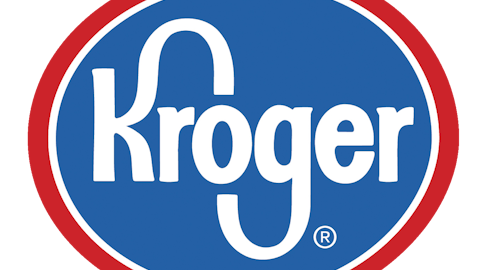Last month, I interviewed Whole Foods Market, Inc. (NASDAQ:WFM) co-founder and co-CEO John Mackey in front of a live studio audience at Motley Fool headquarters. Mackey recently published Conscious Capitalism: Liberating the Heroic Spirit of Business with co-author Raj Sisodia, and he stopped by our Alexandria, Va., offices on his book tour.
The core of their book is that businesses must move away from the so-called “Friedman doctrine,” which posits that the sole aim of a business is to create value for its investors.

Brian Richards: The prevailing narrative of American capitalism has really been the Friedman doctrine, which is basically that shareholder value is the be-all and the end-all of a company. You mention early in the book that Milton Friedman is an intellectual hero of yours, even though you pretty vehemently disagree with him on this point.
This book is a treatise on why that is wrong and what should replace it. So tell us, why is Friedman wrong?
John Mackey: Well, I wouldn’t quite put it that way, but one way to think about it is that Gallup shows that the reputation of big business in America now has dropped down to a 19% approval rating. That means 81% of the people do not really approve of big business. It’s got a terrible brand. It’s seen as selfish and greedy and exploitative. The narrative has been captured by the critics and the enemies of business, the enemies of capitalism. And yet business has been the greatest value creator in the world, as we point out in the first chapter — we show how humanity has been lifted up by business and by capitalism in the last 200 years.
Two hundred years ago, 85% of the people alive lived on less than one dollar a day — today’s dollars. Today, that’s down to 16%. Over 90% of the people alive 200 years ago were illiterate. Today, that’s down to 14%. The average lifespan 200 years ago was only 30. Today, it’s 68 in the world, 78 in the United States. And business and capitalism are largely responsible for this and don’t get credit for it, but it’s true nevertheless.
And so, in the United States now we see 7.9% unemployment; it’s even higher than that if you count all the people that stopped looking for work. We’ve got the GDP per capita and the per-capita income has declined in the past 10 years. I think that’s the first time in American history you’ve seen a 10-year decline. We also saw economic freedom in decline in America that, as little as the year 2000, the economic freedom index had the United States ranked No. 3 behind Hong Kong and Singapore. Now we’ve fallen all the way down to No. 18, and as economic freedom declines, so does our prosperity. They’re directly related, because … the greater economic freedom you have, the more prosperous the nation. There are really no exceptions to that.



